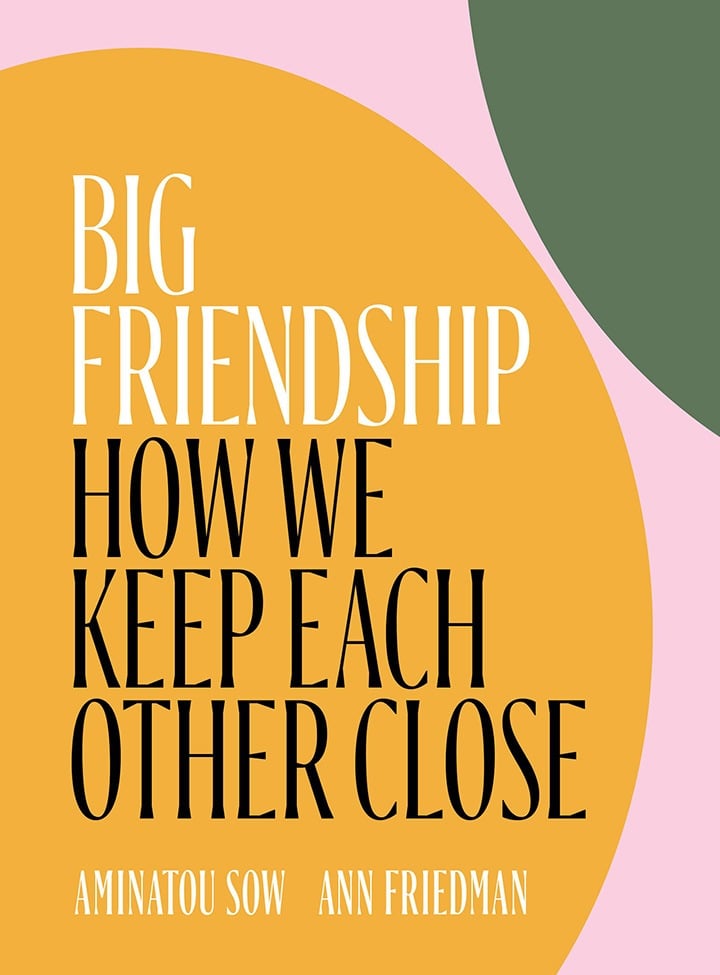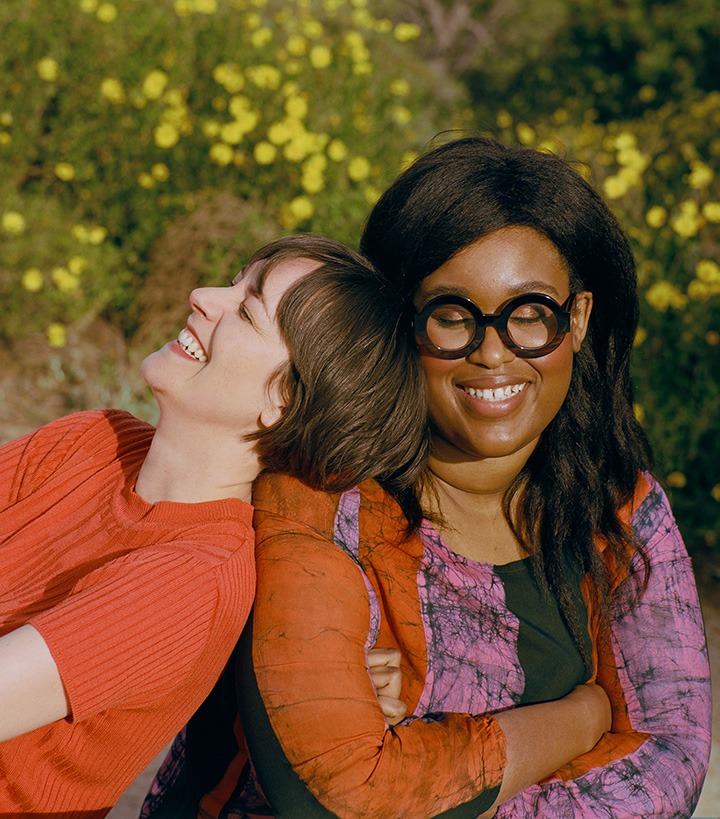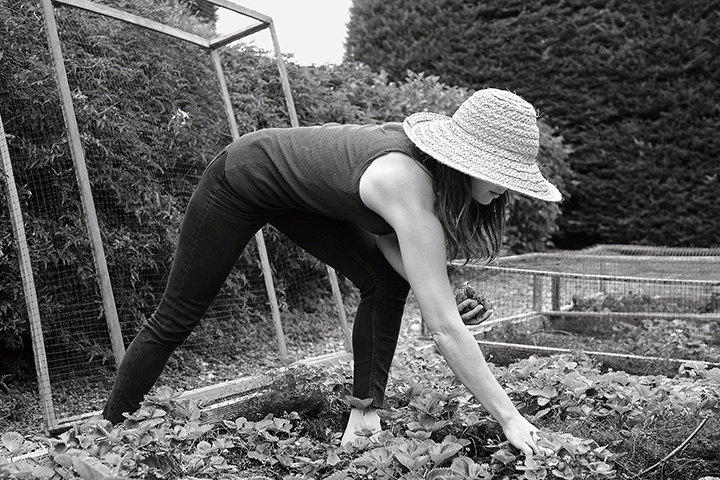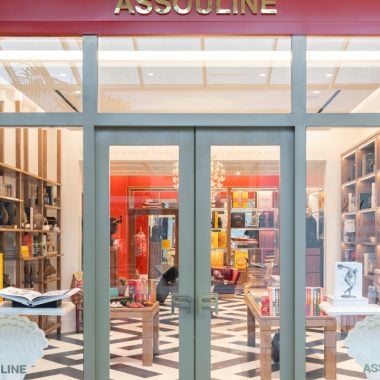
Aminatou Sow and Fanny Singer discuss “Big Friendship.” Portrait by Milan Zrnic.
Six months into a seemingly endless pandemic and a bit more than a month after the publication of Aminatou Sow’s new book “Big Friendship: How We Keep Each Other Close” (co-authored with Ann Friedman), I got in touch with my friend Aminatou to talk friendship, emotional resilience and how to maintain a sense of wellbeing in a time fraught with turmoil.
Fanny Singer: You have this wonderful new book out, which I was delighted to read and which, like my recent book, has come out in the middle of this insane pandemic period. I mean, obviously, I can speak to the surreal business of launching a book called Always Home while being literally always home but what’s it been like for you?
Aminatou Sow: It’s very strange to have published something that I know other people are reading, but not be able to be in dialogue with them. I don’t have the precise words for it, because on the one hand, I’ve never released a book before, so I didn’t have an expectation of how it should be. But everything in the time of Coronavirus feels weird.
FS: I think it’s worth backing up for a second to describe your book, which is a really beautiful testament to a friendship that’s at once professional, and deeply intimate. The book traces a kind of arc, of how you and Ann moved through periods in your lives, that included as much duress as elation. I loved reading it. It felt so resonant, and spoke to many of the important friendships in my life. How do you think “friendship” is behaving differently under the pressures of this moment?

In “Big Friendship,” Sow and Friedman recount the story of their relationship, and the significance of friendship in our lives.
AS: I mean, I can’t believe I co-wrote a book about friendship, because now it’s all I think about. I think the behavior really depends on the modality that you have in the friendship; with my actual long-distance friends like Ann, those friendships are more able to withstand the pandemic because it’s just one more way that we have to stretch ourselves. But, my New York City, everyday friendships, have been a challenge because you realize you start seeing the patterns of the friendship very, very clearly. Like, “Oh, this is a person I only ever see at dinner.” Or, “Actually, this person is someone that unless I initiate contact will actually never get in touch.” Everything is laid bare in a way that makes everyone uncomfortable.
FS: I know. I lived in London for 11 years and the bulk of my friends are still in Europe. And I’ve found that I just cannot have conversations with them. We tried the first few months: we had regular Zooms with all my girlfriends overseas. And then, without anyone saying anything, they just ended. A moment arrived when it wasn’t tenable anymore.
AS: I think that we are all kidding ourselves that keeping in touch with people is something that is easy and natural. We’re all in a collective trauma and it means that everyone is emotionally taxed in a real way. This is a time for courage and kindness. We really need to tap into the place that courage lives in our hearts, because this is a really hard time.
FS: You do need courage now more than ever, because you do get to a certain point—nearly seven months in now—where you’re like, ok, this is a truly unprecedented time. And I know that’s the most worn out word, but it is an unprecedented moment. It’s a feeling of constant, unforeseen psychic pressure, and it can feel like having your brain in a vice.
AS: I know. Anytime I hear that we’re living in unprecedented times, all I think is “I’m ready for some precedented times.” I want some seriously precedented times.
FS: The rudderlessness is I think absolutely one of the greatest spiritual challenges, the sense of eternal attenuation. Even just reading about social gatherings in your book, I had the feeling of “Oh! Parties! How wonderful!” I’m someone who gathers people and constantly cooks for people, and I flock to other people who do the same. You realize to what extent those impulses are actually part of your core identity. It’s not “Oh, poor me, I can’t have a dinner party.” It’s more the act of self-questioning that follows: “Who am I without that piece of me? How do I self-identify?”

Portrait by Milan Zrnic.
AS: I feel that all of the time. I don’t know what my place is in a world where we are not gathered together. The generosity of spirit that is exchanged when people gather together—those who know each other, with those who don’t—that is really important to me. I like to create community. And in this moment, when we cannot do that, it has me rethinking everything about what my part in the world is.
FS: You talk a lot in your book about how the Internet and social media affect friendship.
AS: I think at our core, we refuse to understand that all of these tools are for editing a vision, an image of what you want to project. And so my rule for myself is that I try to mostly only follow friends and people that I know very well. A lot of studies show that people who are the happiest in their use of social media are people who follow people they know instead of following strangers. I think that for the sake of all of our friendships, it is better to have honest conversations about our behavior on social media instead of just assuming what people are doing.
FS: On the one hand, I could not agree with you more. And yet, I’ve found myself on social media probably twice as much as I used to be. I’ve found it so difficult to be really present inside of my more meaningful friendships, but there’s something about being able to go to a friend’s Instagram and be like, “Oh good, they’re fine-ish. They went on a hike, or, they made sauerkraut or a loaf of bread; they haven’t thrown themselves off a cliff. They’re hanging in there.”
FS: Let’s talk about your “Shine Theory,” which is kind of a celebration of other people’s happiness.
AS: Well, I think that part of what Ann and I do well together in our collaboration is that we give words to things that a lot of people are already doing—we are not inventing the wheel here. Shine Theory has been the operating principle in my relationship with Ann:we used to tell each other “I don’t shine if you don’t shine,” which anyone paying attention knows is a lyric from The Killers. We met in our twenties at a time when the gap between where we were in our careers and where we knew we wanted to be was so vast. We watched so many people, mostly men, get these huge takeoffs—older men in the workplace would just pluck them out of nowhere and install them in jobs that we knew they were barely qualified for. It dawned on us that no one was going to look at us in the workplace and say, “Oh, you remind me of myself when I was younger so I’m going to help you because of that.” I was like, “I’m literally a fat black West African woman. No one in corporate America is going to see me and think about themselves.” We really quickly understood that these were structural issues. And instead of waiting for someone to choose us, we decided that we were going to choose ourselves, which is such a healthy survival mechanism.

Author Fanny Singer also released a book, “Always Home,” during the pandemic. Photograph by Briggite Lacombe.
FS: I want to ask you a final question. Was there anything you feel you learned in putting this book out there? Or, have you had any public reception that has shifted your thinking in an unexpected way?
AS: I have been so heartened by all of the mail we’re getting from people talking about their friendships. The reason we really wanted to write this book was because we were really hoping that by opening up about our friendship, other people would open up about how they were doing friendship. We have a really good social script for romantic relationships, and a really good one for parents and children. But really, not for someone who is a platonic partner. When there’s love and there’s strife, where do you turn? So we wrote this book because we wanted to give other people a resource too. I have loved hearing from other people about how they’re doing it, because it’s been such a reminder that friendship is so important, especially during the pandemic. So many people are leaning on their friends. So many people have created alternative models of family and are just choosing to do things together. I got so excited when I heard about friends buying a house together, or raising a child together. And it makes me so hopeful that we can live in a world where people have the freedom to just be themselves.





Márcia Nunes December 29, 2020 at 5:04 pm
Eu gosto de receber fotografias de moda e vídeos de desfiles de grifes